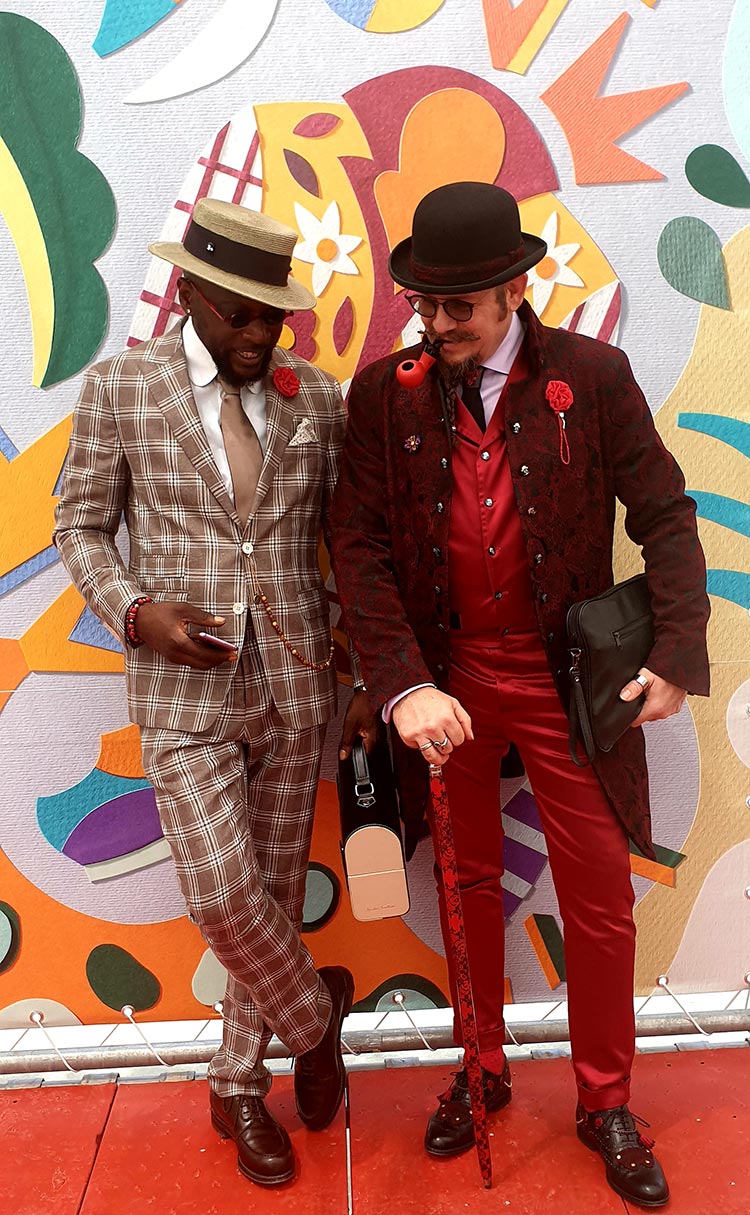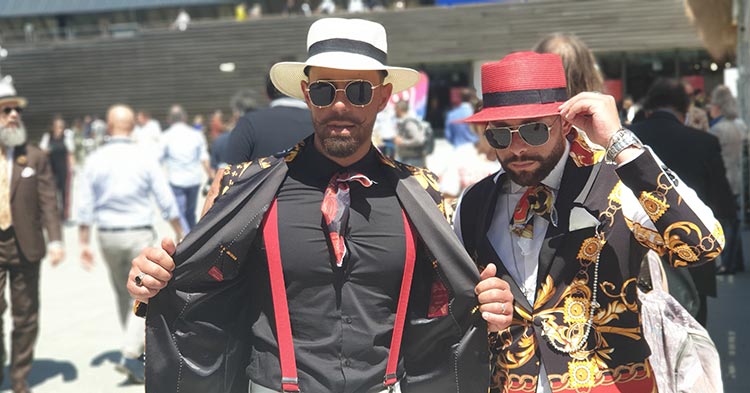Once a subculture movement, streetwear has elevated itself over the years, becoming a multifaceted phenomenon influencing modern fashion.
Today, streetwear is a progressive norm. Its immense popularity has lots of people from fashion designers to high fashion houses taking to the streets and tapping into its image-centric appeal.
Designer menswear from streetwear brands such as Heron Preston and Off-White as well as venerable houses like Louis Vuitton and Burberry has infused streetwear sensibility with a vision of exclusivity. What’s more, these storied fashion houses have turned to streetwear designers, creating symbiotic relationships that define fashion culture.
Virgil Abloh (of Off-White fame) became a champion of this new era of designers. His disruptive architectural style and high-art-meets-streetwear aesthetic gave classic logos a postmodern spin. Soon, his Off-White collections became coveted pieces — favourites among the celebrity set.
This endorsement transformed Virgil Abloh, turning his name and his brand into a global phenomenon. This ascent eventually leads to Abloh’s appointment as Louis Vuitton’s men’s artistic director.
But how did streetwear evolve from its initial niche audience to become culturally dominant?

The Rise of Streetwear
By no means is streetwear a new phenomenon. Before rising through the ranks exponentially, streetwear personified skate and hip-hop culture. This subculture was defined by a logo-heavy aesthetic.
But streetwear is more than just a logo-dominant style. It defined youth culture. At its core, streetwear is about freedom of expression. Its inclusive nature democratizes fashion, encouraging self-expression and giving rise to an anti-establishment status.
Over the years, the streetwear movement has experienced numerous waves. The first movement of this subgenre can be traced back to Steve Stussy, co-founder of clothing brand Stüssy and LA’s skateboarding and surf culture. Soon after, streetwear was adopted by hip-hop, giving rise to athleisure wear, defined predominantly by certain aesthetics such as sported tracksuits and high tops.
After its popularization in the ‘80s and ‘90s, streetwear became more prominent in mainstream culture, although it still maintained a presence in the fringes of high fashion.
It would take a timely collaboration between luxury giant Louis Vuitton and streetwear legend Supreme to forever change the landscape of streetwear.
The Post-Streetwear Movement
While Supreme is no stranger to collaborations, having worked with fashion brands such as Timberland, Lacoste, and Levi’s in the past, it would take a 2017 collaboration with Louis Vuitton to blur the division between streetwear and high fashion. The partnership, unveiled during 2017’s Paris Fashion Week, broke down fashion’s long linear hierarchy.
In the past, trends would trickle down from luxury fashion houses to consumers. Streetwear’s grip on consumers resulted in the casualization of fashion. Now, trends trickle from the streets, representing a generational shift in how high fashion is perceived.
These days, every major brand participates in this trend. All major brand temples now produce limited product releases, generating seismic demand that is devoured by the masses.
But this current era of streetwear is not just about subverting fashion boundaries or deconstructing how mainstream society defines luxury. Streetwear in the post-streetwear movement is a new language. Streetwear is an inspiration. Cult brands like Stone Island, Supreme, Off-White, and BAPE (just to name a few) have become drivers of culture.
The Future of Streetwear
While the marriage of streetwear and luxury fashion may appear to be an unlikely love affair, if Virgil Abloh’s appointment to Louis Vuitton is any indication, streetwear is a new luxury.
The rise of influential social media culture (namely, Instagram) and a healthy resale market continues to drive demand. Recent collaborations such as Louis Vuitton x Supreme and Palace x Polo Ralph Lauren are moulding a new story for high fashion and streetwear alike.
Without a doubt, streetwear will continue to be an expression of lifestyle, while luxury fashion (which brings to mind respected names like Gucci and Saint Laurent) will maintain its vision of exclusivity. But the collaborative collision of these two distinct fashion worlds will serve up the aspirational dream that streetwear is a lasting socio-cultural icon in the fashion world.















